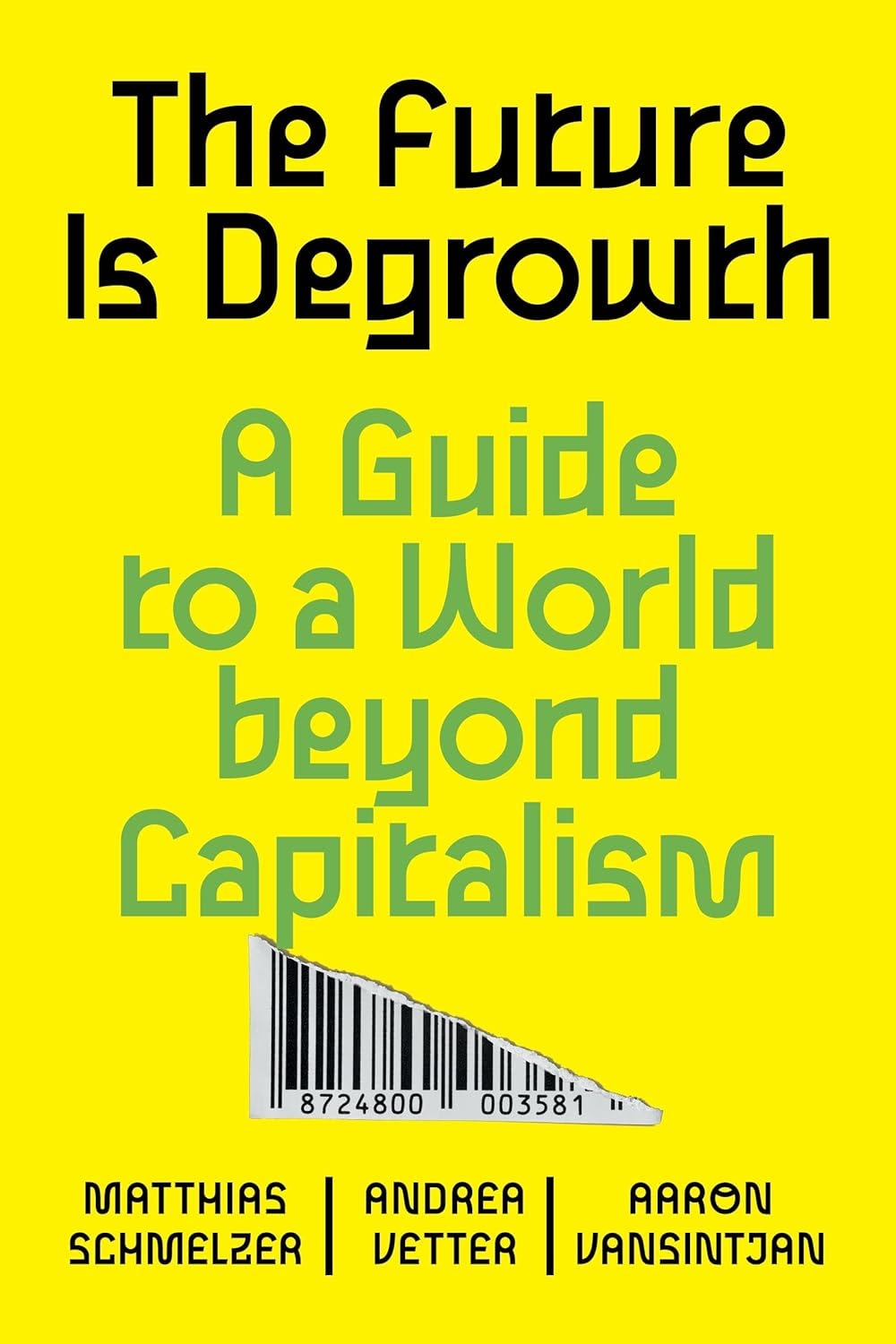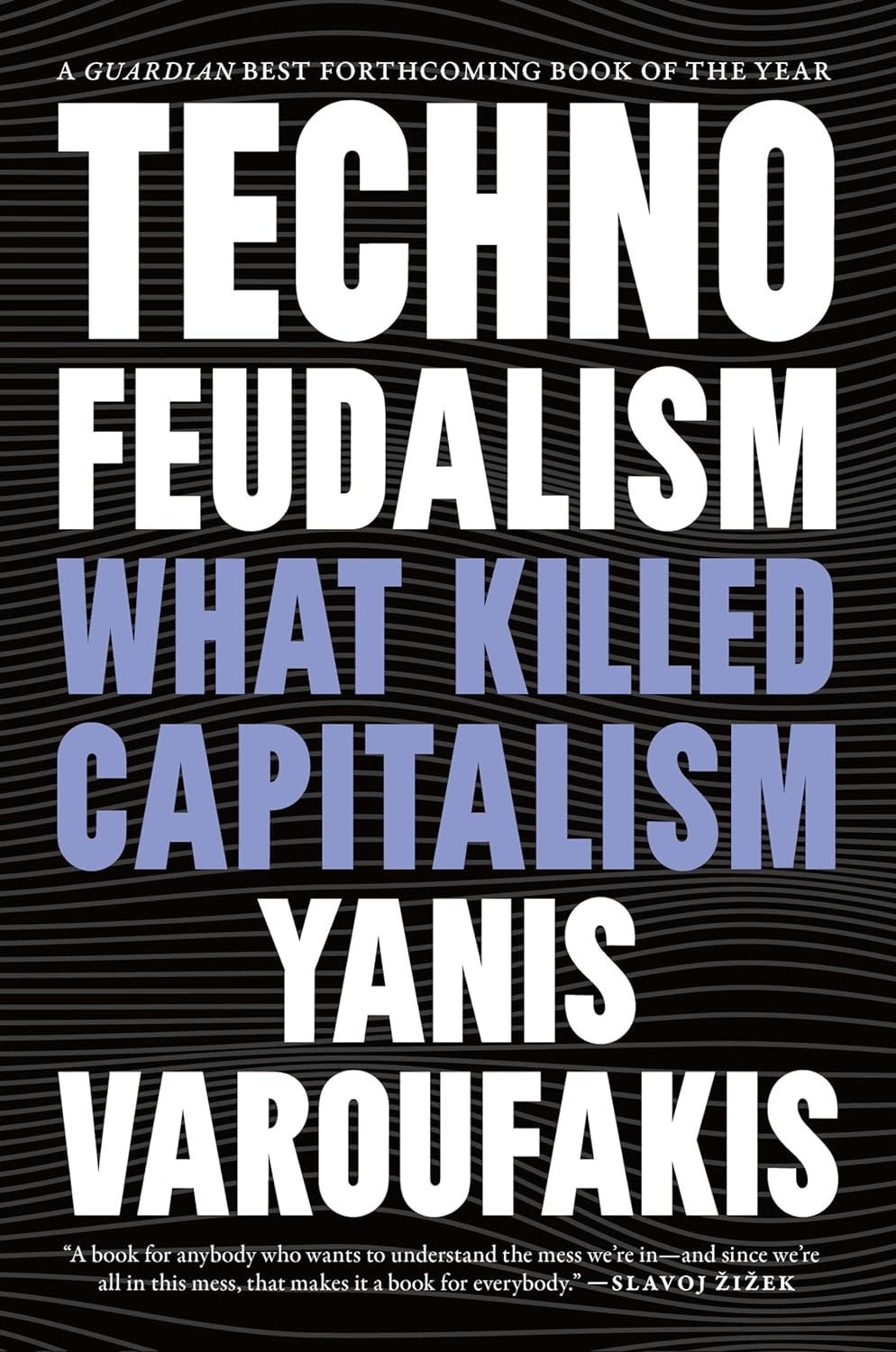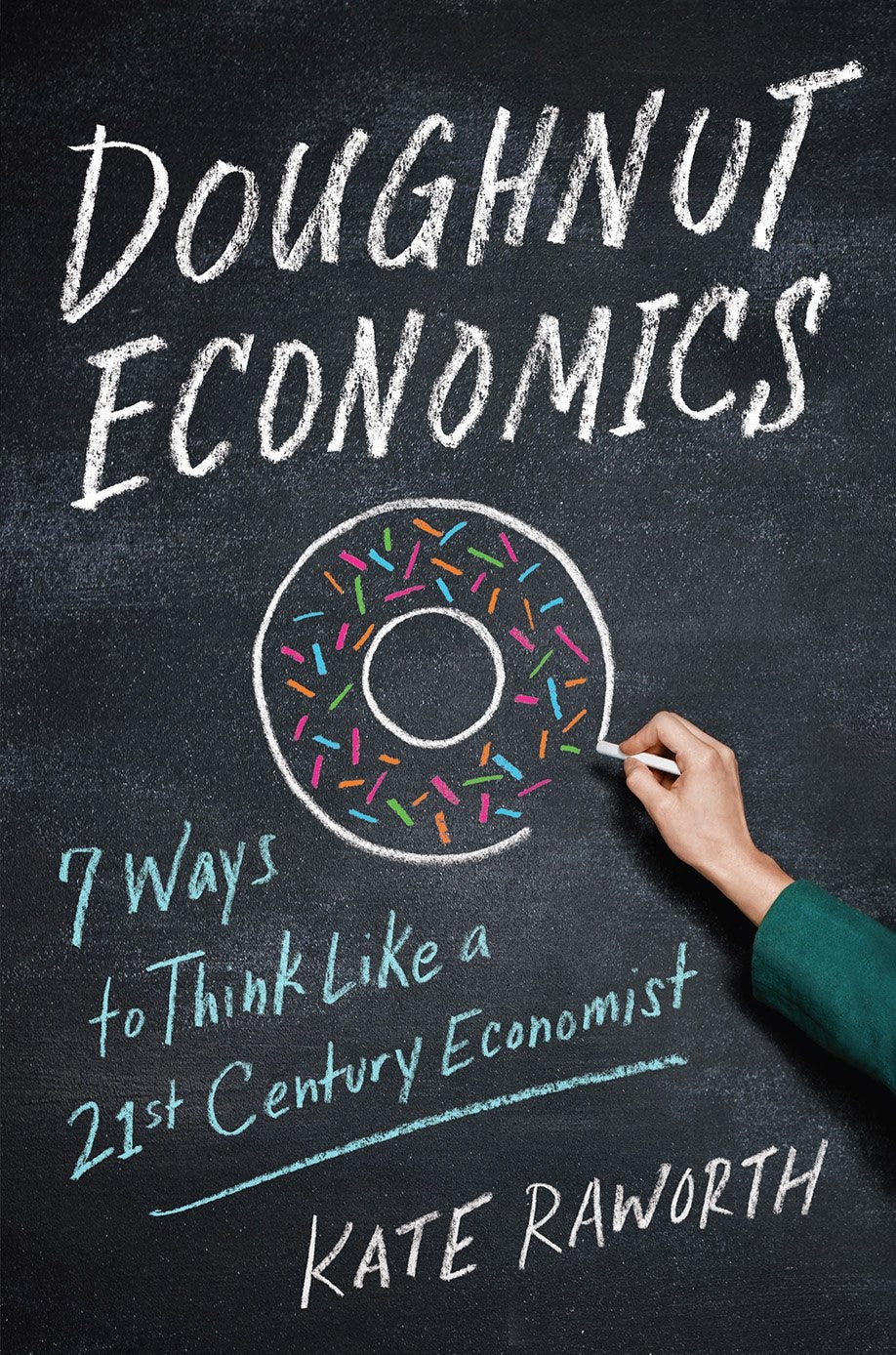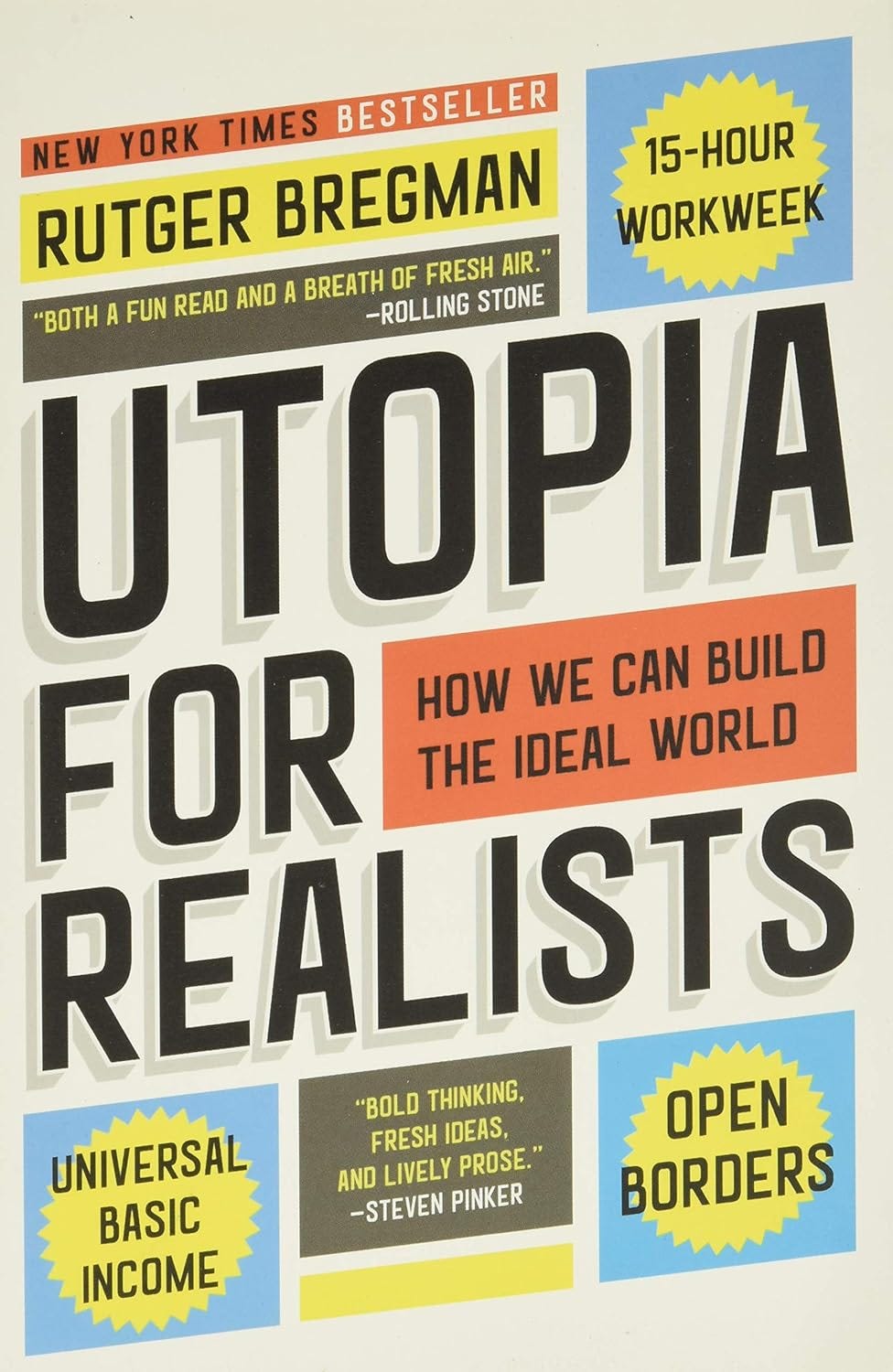Reading List: 8 Books for Understanding Degrowth Economics
Curious to learn more about degrowth? Whether you're just getting started or looking to go deeper, check out the following subject overviews, manifestos, and more.
So you want to learn more about the degrowth movement? What follows is a non-exhaustive list of worthy reads that will help you get your arms around degrowth economics, as well as adjacent ideas that might also inform your thinking.
Before anyone takes to the comments with pitchforks: this list does have an intentional recency bias—obviously texts like Limits to Growth, Beyond Growth, and Farewell to Growth are foundational, and I do recommend those if you have the time and inclination. These texts certainly “hold up”—there are plenty of ways that the ideas in both LtG, BG, and FtG track precisely with contemporary degrowth ideas and arguments. That said, the “overview” texts below recap the primary arguments and information, with the added benefit of reacting to events that took place during the many years following the publication of LtG (1972, with a 30-year update in 2004), BG (1996) and FtG (2007—just two months before the Great Recession began).
This list is a small roundup meant to provide key invitations to the subject of degrowth.
Less Is More: How Degrowth Will Save the World, Jason Hickel (Penguin Random House, 2020)
Jason Hickel is arguably the most well-known proponent of degrowth, at least in the West. Less is More was a source text for me (among many others) in developing an understanding of degrowth, and for good reason: it’s a concise, accessible synthesis of prevailing ideas across history, economics, and philosophy, with unambiguous advocacy for implementing degrowth practices.
📖 Available here.
Slow Down: The Degrowth Manifesto, Kohei Saito (Astra House, 2024)
Degrowth has been lauded and criticized for being more activism than scholarship. If you want an emotional appeal in your degrowth education, Slow Down is the book for you. It’s one of the main reasons interest in degrowth has reignited in the 2020s, selling more than half a million copies in Japan as Marx in the Anthropocene: Towards the Idea of Degrowth Communism (2020), and now available to the English-speaking world via this translation by Brian Bergstrom. Slow Down contains Saito’s formulation of “degrowth communism,” which as you can imagine has drawn the full range of emotions from curiosity and enthusiasm to ire and condescension.
📖 Available here.
The Future is Degrowth: A Guide to a World Beyond Capitalism, Matthias Schmelzer, Andrea Vetter, Aaron Vansintjan (Verso Books, 2022)
The Future is Degrowth is a great degrowth introduction or intermediate read for those seeking a more scholarly literature analysis. It progresses through a series of critiques of economic growth and the associated tolls of neoliberalism, ultimately developing an argument for degrowth. As promised in the title, it looks at pathways to degrowth as well as areas the authors believe researchers and activists should broaden the degrowth movement: class and race, geopolitics and imperialism, information technology, and democratic planning, which turns the critical lens back on the movement to contend with current perceived shortcomings.
📖 Available here.
Exploring Degrowth: A Critical Guide, Vincent Liegey and Anitra Nelson (Pluto Press, 2020)
Exploring Degrowth is another great place to begin for readers seeking a scholarly approach to the degrowth argument. It’s a short, densely packed book, which critically assesses the unsustainable nature of continuous economic growth and advocates for a societal shift towards ecological sustainability and social wellbeing. It establishes the intellectual foundations of degrowth as well as the importance of decolonizing the growth imaginary, outlines political strategies, and provides practical examples to advocate for bringing about alternatives to contemporary capitalism.
📖 Available here.
The Case for Degrowth, Giorgos Kallis, Susan Paulson, Giacomo D’Alisa and Frederico Demaria (Polity, 2020)
The Case for Degrowth emphasizes enacting real-world change through degrowth. The book progresses from outlining the clear why for degrowth before unpacking the sacrifices that this shift will entail (see: living well with less). It pulls from examples from around the world to advocate for collectively shifting toward societies that slow down of their own accord and promote values of wellbeing, equity, and sustainability.
Note: Giorgos Kallis is also a leading figue in degrowth, and the author of a number of other important important texts, including In defense of degrowth: Opinions and minifestos and Limits: Why Malthus Was Wrong and Why Environmentalists Should Care.
📖 Available here.
Adjacent Works
Degrowth lives within a “movement of movements,” overlapping with many different proposals and theories. The following books don’t center degrowth outright, but bring up necessary ideas in evaluating the concept.
Technofeudalism, Yanis Varoufakis (Melville House, 2024)
Technofeudalism isn’t explicitly about degrowth, but in its attempt to describe the contemporary economic reality—in which capitalism has given way to what former Greek Minister of Finance Yanis Varoufakis calls “technofeudalism”—it operates as a critical text for anyone seeking to understand the challenges degrowth efforts will face in the next quarter century. This is my favorite new book of 2024 so far.
📖 Available here.
Doughnut Economics: Seven Ways to Think Like a 21st-Century Economist, Kate Raworth (Chelsea Green Publishing, 2017)
Doughnut Economics scrutinizes the thesis of perpetual economic growth without attention to human needs or environmental impact. The publisher’s description says it best: Doughnut Economics “identifies seven critical ways in which mainstream economics has led us astray, and sets out a roadmap for bringing humanity into a sweet spot that meets the needs of all within the means of the planet.”
📖 Available here.
Utopia for Realists, Rutger Bregman (Little, Brown and Company, 2017)
If you saw that video of a Dutch historian artfully dunking on Tucker Carlson, that’s Rutger Bregman. Utopia for Realists is his beginner argument for unviersal basic income, written in an accessible voice that demonstrates how so-called unrealistic “utopian” ideas like the 15-hour work week or the elimination of poverty actually could happen in our lifetimes. Given the importance of UBI in many degrowth schemas (or the more en vogue Universal Basic Dividend), this is a great parallel read.
📖 Available here.
Support Reality Studies:
ZBiotics: Right now, get 10% off ZBiotics. Just head over to zbiotics.com and use code JESSEDAMIANI. The next day after drinking feels way better when you take one of these. Art fairs have no shortage of alcohol—perfect time to test drive ZBiotics.
Genetically engineered by a team of PhD microbiologists, ZBiotics is a probiotic drink that breaks down the byproduct of alcohol responsible for rough mornings after drinking (acetaldehyde).
NordVPN: Right now, get up to 72% off 2-year plans + a Saily eSIM data gift through this link. Some people tell me that “VPN” brings to mind ideas of hackers and the dark web, but honestly VPNs are just an extremely easy way to stay much safer online. You don’t have to have any more tech savviness than using any other app! I’ve used NordVPN for the past four years, and appreciate what they offer, including Threat Protection against malware, 24/7 customer support, fast speeds, and more. One account can protect up to 6 devices (phone and computer), and they don’t track or share what you do online. Another benefit: you can always access the content/apps you have at home, wherever in the world you are.
Mission Farms CBD: Mission Farms CBD crafts full-spectrum CBD products for specific conditions like sleep, stress, and discomfort, using a combination of CBD and terpenes found in essential oils. I swear by this stuff: I take one of their Marionberry Lemon gummies to end each day.
There’s a lot of junk CBD on the market. All of Mission Farms’s CBD comes from a small farm in Bend, Oregon. They farm the hemp organically, tend every plant by hand, and test for purity four times: the soil, the hemp, the hemp-extract, and the final products. This CBD is designed for wellness and it shows. Go to this link and sign up for emails to get 25% off your first order.
Disclosure: Reality Studies is a reader-supported publication. In some cases Reality Studies may earn a portion of sales from products that are purchased through affiliate links on the site. Thank you for supporting my work by purchasing these products through the links provided. I’m working hard to build Reality Studies to be completely financially self-sustaining. My ongoing commitment to readers is that I will only ever share products I actually believe in.
Like this post? Check out some related work such as my metacrisis and polycrisis primer:
Reality Studies also produces the Urgent Futures podcast. Here’s a recent episode:














Degrowth gang!